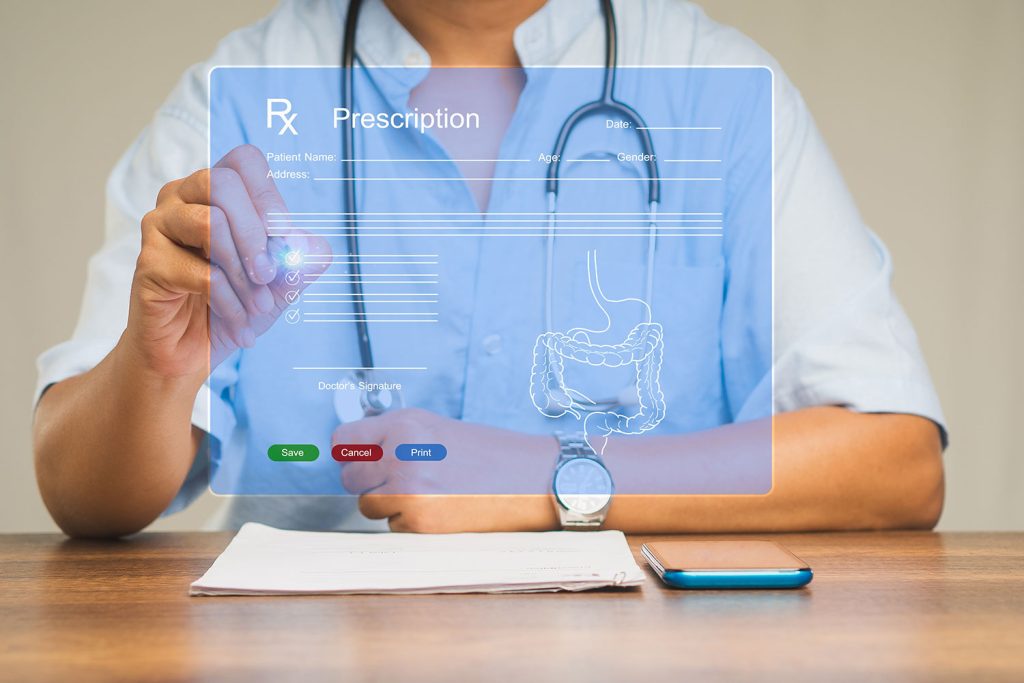Digital treatment monitoring involves systematic patient follow-up protocols, automated medication adherence tracking, and continuous symptom assessment through secure telemedicine in NextClinic. These monitoring systems utilise patient-reported outcome measures, pharmacy dispensing data, electronic health record integration, and scheduled virtual consultations, enabling healthcare providers to track treatment effectiveness and medication safety. Healthcare providers utilise sophisticated tracking algorithms and patient engagement tools to ensure prescriptions online remain effective while identifying potential complications or medication adjustments needed throughout treatment courses.
Automated adherence tracking
Digital monitoring systems track medication adherence through pharmacy dispensing records, patient self-reporting tools, and smart device integration, providing real-time information about prescription compliance and treatment consistency. These automated systems identify missed doses, delayed refills, and adherence patterns that indicate potential treatment challenges requiring intervention. Adherence tracking includes pharmacy refill monitoring that identifies gaps in medication pickup, electronic pill reminder systems that prompt patients about dosing schedules, and mobile app integration that logs medication administration while providing healthcare providers with continuous compliance data.
Patient outcome assessment
Structured outcome measurement protocols evaluate treatment effectiveness through standardised questionnaires, symptom tracking tools, and functional improvement indicators that quantify patient progress. These assessment systems enable online doctors to monitor treatment response while identifying patients requiring medication adjustments or alternative treatment approaches based on objective outcome data. Outcome assessment includes validated symptom scales that measure treatment response, functional capacity evaluations that assess improvement in daily activities, and quality of life indicators that demonstrate overall treatment effectiveness and patient satisfaction with prescribed medications.
Scheduled follow-up consultations
Systematic consultation scheduling ensures regular patient contact through video appointments, phone check-ins, and secure messaging that maintains continuous healthcare oversight throughout treatment periods. These follow-up protocols include predetermined consultation intervals, symptom-based monitoring schedules, and flexible appointment availability that accommodates patient needs and treatment complexity.
- Initial follow-up appointments within 48-72 hours for new prescription monitoring
- Weekly consultations for complex conditions requiring close monitoring and adjustment
- Monthly check-ins for stable chronic conditions with established treatment protocols
- Emergency consultation availability for urgent questions and adverse reaction concerns
- Medication review appointments before prescription renewals and refill authorisation
Follow-up scheduling maintains treatment continuity while enabling proactive intervention when patients experience side effects, treatment complications, or suboptimal therapeutic responses that require prescription modification or alternative treatment strategies.
Data analytics optimisation
Advanced analytics systems analyse patient response patterns, treatment outcomes, and medication effectiveness across patient populations to optimise prescription protocols and identify best practices. These analytical tools enable healthcare providers to refine treatment approaches based on real-world effectiveness data and patient outcome trends.
- Treatment response analysis identifying optimal medication dosing and timing protocols
- Side effect pattern recognition enabling proactive management and prevention strategies
- Outcome prediction modelling that anticipates treatment success and potential complications
- Population health analytics that inform evidence-based prescribing practices and guidelines
- Continuous improvement protocols that refine monitoring systems based on patient feedback and outcomes
Analytics optimisation enhances treatment quality while supporting evidence-based medication management, improving patient outcomes through data-driven prescription optimisation and monitoring protocol refinement. Online prescription monitoring combines automated tracking systems with structured patient assessment and continuous communication channels that ensure treatment safety and effectiveness throughout medication courses. These comprehensive monitoring approaches demonstrate how digital healthcare maintains clinical oversight while providing convenient access to medical care. Integrating technology with professional medical judgment creates robust monitoring systems that protect patient safety while optimising treatment outcomes through evidence-based medication management and proactive intervention protocols.


Comments are closed.